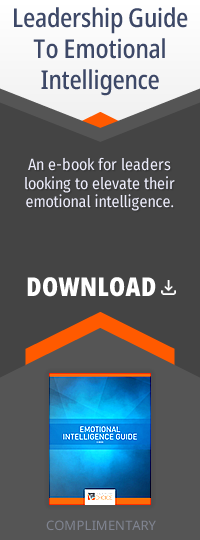
End-of-Year Reviews That Empower and Inspire
As the year draws to a close, you might find yourself facing the annual ritual of the year-end review. This time can feel daunting, filled with evaluations that focus narrowly on metrics and performance. But what if you could shift this experience from a source of stress to an opportunity for genuine growth and inspiration?
Stepping Beyond Traditional Reviews: Understanding the Need for Change
As you approach the end of the year, it’s time to rethink the traditional approach to year-end reviews. This section delves into why it’s crucial to move beyond the conventional methods that often focus solely on metrics and performance, and how you can transform these reviews into a more meaningful experience.
The Limitations of Traditional Year-End Reviews
Traditional year-end reviews often revolve around assessing performance against set targets and objectives. While this approach has its merits, it can sometimes lead to a narrow focus, where the broader picture of an employee’s growth and potential is overshadowed. You might have experienced how such reviews can sometimes feel more like a report card than a constructive conversation. This approach can miss out on understanding the individual’s unique challenges, learning experiences, and the diverse skills they bring to the table.
Embracing a Holistic View
The key to a more empowering review lies in adopting a holistic view. This means looking at not just what was achieved, but how it was achieved. Consider the skills you’ve developed, the challenges you’ve overcome, and the learning opportunities you’ve embraced throughout the year. This broader perspective helps in recognizing not just the outcomes, but also the journey and the personal growth that occurred along the way. It’s about understanding that your value in the organization isn’t just in what you do, but also in who you are becoming as a professional.
The Power of Reflective Practice
Incorporating reflective practice into your year-end review can be transformative. Reflecting isn’t just about looking back; it’s an active process of understanding your experiences, learning from them, and using these insights to inform future actions. When you engage in reflective practice, you’re not just recounting events; you’re analyzing them, understanding their impact, and planning how to leverage these experiences for future growth. This approach turns the year-end review into a powerful tool for personal and professional development, rather than just an evaluation.
A Reflective Look at the Year Gone By: Celebrating Successes and Learning from Challenges
In this section, you’ll explore how to conduct a reflective review of the past year. This process is not just about tallying successes or pinpointing shortcomings; it’s an opportunity to holistically assess your journey, acknowledging both your achievements and the hurdles you’ve encountered. This reflective practice paves the way for a deeper understanding of your professional path and personal growth.
Celebrating Your Achievements
Start by acknowledging your successes. Reflect on the goals you’ve met and the projects you’ve excelled in. It’s important to recognize these accomplishments, no matter how small they may seem. Celebrating your achievements isn’t just about giving yourself a pat on the back; it’s about understanding what worked well. What strategies led to these successes? How did your unique skills and strengths play a role? This isn’t just about feeling good; it’s about identifying the actions and approaches that you can carry forward into the future.
Learning from Challenges
Equally important is the reflection on the challenges you faced. Every professional journey has its share of obstacles, and it’s crucial to view these not as failures, but as learning opportunities. Think about the situations that didn’t go as planned or the goals you didn’t quite reach. What were the contributing factors? Was it a lack of resources, unexpected external factors, or something within your approach that could be improved? Understanding these aspects is key to your growth. It’s not about dwelling on the negative, but about extracting valuable lessons that can inform your future strategies and decisions.
Assessing the Impact of External Factors
In your reflection, don’t forget to consider the external factors that influenced your year. This could include changes within your organization, shifts in the industry, or even global events that had an impact on your work life. Recognizing these factors is crucial in providing context to your achievements and challenges. It helps in understanding that not everything is within your control and that adaptability and resilience are valuable traits. This perspective ensures a fair and realistic view of your year, helping you set appropriate goals for the future.
Shifting Focus to Personal and Professional Development
In this crucial section, you’ll learn how to shift the focus of your year-end review from solely performance metrics to encompassing your overall personal and professional development. This approach allows you to see a more comprehensive picture of your growth, beyond just the numbers and targets. It’s about understanding and developing your skills, competencies, and career aspirations.
Identifying Strengths and Areas for Growth
Begin by identifying your core strengths. What are the skills and abilities that you consistently excel at? Recognizing these is not just about self-appreciation; it’s about understanding where your significant contributions lie. Then, turn your attention to areas where you have room for growth. These aren’t weaknesses, but opportunities – areas where you can expand your skill set and knowledge. Be honest with yourself in this assessment. It’s an essential step towards setting targeted, meaningful goals for your development.
The Role of Constructive Feedback
Receiving and giving constructive feedback is a pivotal part of your development. In your review, seek feedback that is specific, actionable, and balanced. It should not just focus on what needs improvement, but also highlight what you are doing well. When receiving feedback, listen actively and with an open mind. Remember, the goal of feedback is not to point out faults, but to guide you towards better performance and professional growth. Similarly, when giving feedback to others, focus on being clear, direct, and supportive, helping them on their growth journey.
Leveraging Development Opportunities
Finally, explore the development opportunities available to you. These could be in the form of training programs, new projects, mentorship, or even cross-departmental collaborations. Think about how these opportunities align with your identified areas for growth and career aspirations. Actively seeking and engaging in these opportunities demonstrates your commitment to continuous learning and improvement. It’s about taking charge of your professional development and not just waiting for opportunities to come to you. Remember, your growth is a continuous journey, and actively seeking ways to develop is key to your long-term career success.
Crafting Goals That Inspire
As you turn the page to a new year, it’s time to set goals that not only challenge you but also inspire and motivate you. This section focuses on how to establish goals for the upcoming year that are aligned with your personal and professional aspirations. It’s about creating a roadmap that guides your journey through the next year, filled with milestones that are both achievable and ambitious.
Setting Realistic and Achievable Goals
Begin by setting goals that are realistic and within your reach. These goals should stretch your abilities but still be attainable. Consider your current skills, resources, and the time you have available. It’s important to set yourself up for success by establishing goals that are challenging yet feasible. Remember, a goal that is too far out of reach can be demotivating, while one that’s too easy may not provide enough challenge to spur your growth.
Aligning Goals with Personal and Professional Values
Your goals should resonate with your personal and professional values. This alignment ensures that your objectives are not just a means to an end but are intrinsically rewarding. Reflect on what matters most to you in your career and personal development. Are you looking to lead larger projects, improve your work-life balance, or develop a new skill? Ensure your goals are a reflection of these aspirations. When your goals are aligned with your values, you’ll find a deeper sense of purpose and fulfillment in achieving them.
Making Goals Measurable and Time-Bound
To effectively track your progress, your goals need to be measurable and time-bound. Instead of vague aspirations, define clear, quantifiable objectives. For instance, rather than setting a goal to ‘improve public speaking skills,’ aim to ‘attend a public speaking workshop and present at least three times by the end of the quarter.’ Setting deadlines not only provides a clear timeframe but also creates a sense of urgency that can be motivating. This approach allows you to celebrate small victories along the way, keeping you motivated and on track.
By setting goals that are realistic, aligned with your values, and measurable, you create a clear path for the year ahead. This process turns goal-setting from a mundane task into an exciting opportunity to envision and work towards the future you desire.
Recharging During the Holidays: Embracing the Opportunity for Rest!
As the year winds down, it’s crucial for you to embrace the holiday season as a time for rest and rejuvenation. This section emphasizes the importance of taking a break, not just as a period of relaxation, but as a vital component of your professional growth and personal well-being. It’s about using this time to recharge your batteries and find fresh inspiration for the year ahead.
The Importance of Taking a Break
Understand that taking a break is essential, not optional. It’s easy to fall into the trap of continuous work, especially when technology keeps you connected to your job around the clock. However, stepping away from work is crucial for maintaining long-term productivity and creativity. Use this time to disconnect from your daily work responsibilities. This break can help prevent burnout, reduce stress, and provide you with the much-needed mental space to think creatively and strategically.
Finding Inspiration Outside of Work
The holiday season is an excellent opportunity for you to pursue activities that inspire you outside of your professional life. Engage in hobbies, spend time with loved ones, travel, read, or simply relax. These activities can provide new perspectives and ideas that you can bring back to your work. Sometimes, the best professional insights come when you’re not actively seeking them, but when you’re engaged in completely unrelated activities.
Planning for the Year Ahead
While it’s important to take a complete break from work, the end of the year can also be a reflective time. Use this period to think about your goals and aspirations for the upcoming year. This doesn’t mean diving into work tasks, but rather, taking a relaxed approach to consider what you want to achieve next. Jot down ideas as they come to you in a stress-free setting, away from the pressures of the workplace. This relaxed planning can set a positive tone for the year ahead, allowing you to return to work with a clear, focused mind.
By embracing the holiday period as a time for rest, inspiration, and relaxed planning, you set the stage for a productive and fulfilling new year. This approach ensures that you start the upcoming year refreshed, with a renewed sense of purpose and enthusiasm.
Building a Year-Round Culture of Growth and Development by Cultivating Continuous Feedback
There is an importance of establishing a culture of continuous feedback in your professional environment. Moving beyond the traditional annual review, this approach involves regular, constructive feedback that supports ongoing growth and development. It’s about creating a dynamic where feedback is not an annual event, but an integral part of your everyday work life.
The Benefits of Continuous Feedback
Continuous feedback offers numerous advantages over the traditional annual review. It allows for timely recognition of your achievements and prompt guidance on areas needing improvement. This immediacy helps you adjust and refine your strategies and actions more quickly, leading to continuous improvement and learning. Moreover, regular feedback helps in building stronger relationships with your colleagues and supervisors, as it fosters open communication and trust.
Implementing Continuous Feedback
To integrate continuous feedback into your routine, start by seeking regular input from your supervisors, peers, and subordinates. This can be in the form of informal check-ins, scheduled meetings, or even through digital communication platforms. The key is to make these interactions consistent and constructive. When giving feedback, focus on being specific, objective, and supportive. Similarly, when receiving feedback, listen actively and with an open mind, viewing it as an opportunity for personal and professional growth.
Maintaining a Growth Mindset
A critical aspect of benefiting from continuous feedback is maintaining a growth mindset. This means viewing your abilities and intelligence as qualities that can be developed. Embrace challenges, persist in the face of setbacks, and see effort as the path to mastery. When feedback is given, view it as an opportunity to learn rather than a judgment of your abilities. This mindset encourages a positive attitude towards feedback and learning, making the process of continuous development more effective and rewarding.
By fostering a culture of continuous feedback, you create an environment where growth and development are ongoing processes. This approach not only enhances your professional skills but also contributes to a more dynamic, engaged, and collaborative workplace. Remember, the goal of continuous feedback is not just to evaluate, but to empower and inspire you throughout the year.
Your Path to Empowering Your Employees
As you step into the season of reflection and forward planning, remember that year-end reviews are more than just an evaluation of past performance. They are a pivotal opportunity for growth, inspiration, and setting a positive tone for the year ahead. By rethinking traditional review methods, celebrating achievements, learning from challenges, setting inspiring goals, embracing rest, and fostering a culture of continuous feedback, you transform these reviews into a powerful tool for personal and professional development. Let this year-end be the start of a more fulfilling journey, where reviews are not just a formality but a stepping stone to greater achievements and satisfaction in your career.



